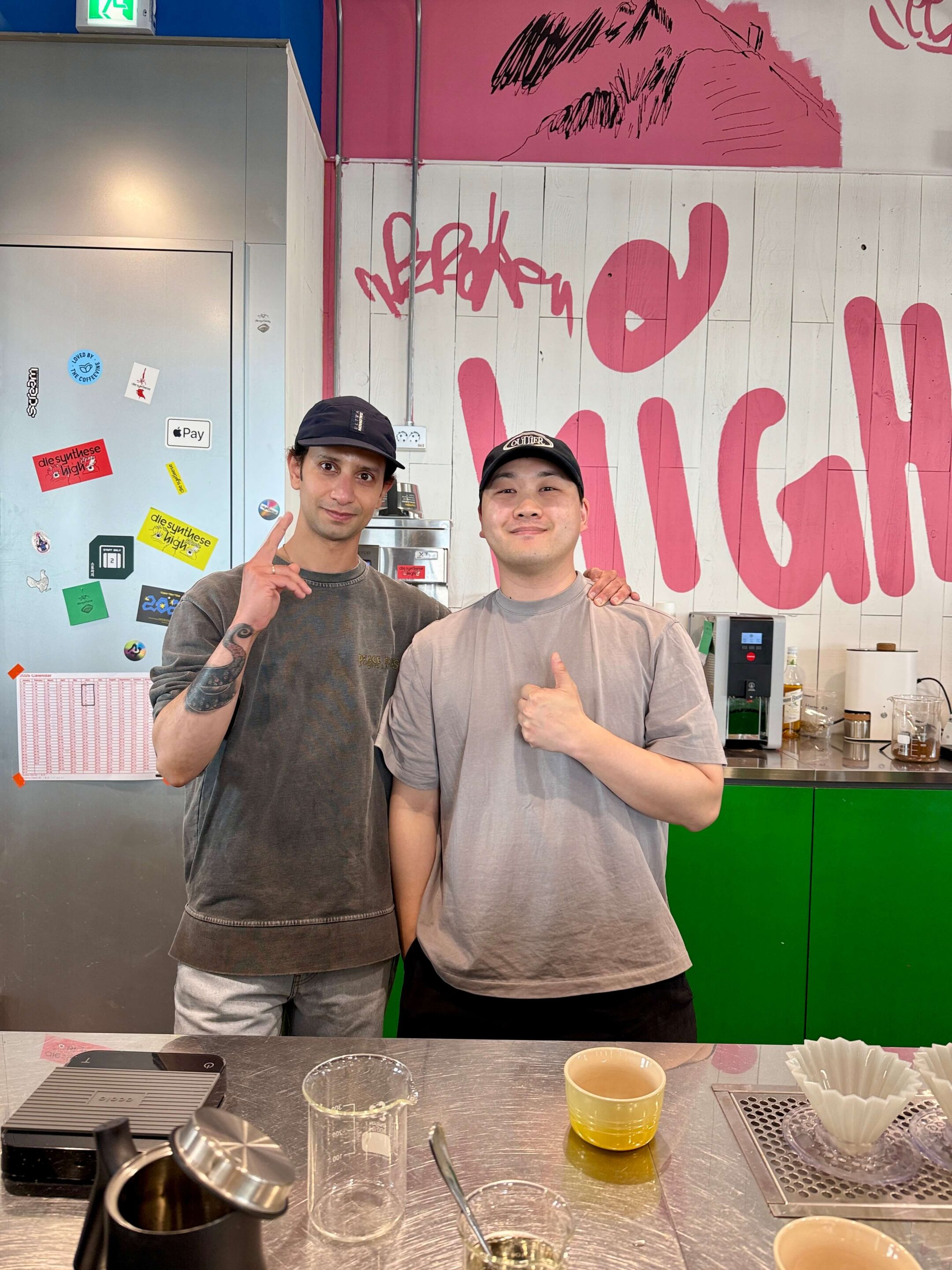Home / Cafes / South Korea / Seoul

The South Korean capital Seoul is a really incredible place. From the moment I landed until I left, I was fascinated by its energy. And while it’s home to nearly 10 million people, the city is really accessible, at least I thought it was.
This is, of course, largely due to its excellent public transport system and walkable areas with little to no car-traffic. Many people who visit South Korea go there for the food but its coffee scene is also totally nuts. One place that I really loved was Die Synthese.
My Spanish friend Lucas Hernandez had told me to visit Die Synthese in Seoul. It’s funny how small the world is sometimes. He said that they had a really unique concept but didn’t go into further detail. After arriving on the 10th floor of a non-descript office building, I entered a vast café space where Ala Al-Muraish and his partner Yehan Kim run a café.
And if that’s not curious enough already, the fact that Yehan was raised in Germany where she met Yemeni transplant Ala before they moved to South Korea will be the kicker. Yehan has Korean roots, which is why this move made sense for them and as Ala explained over coffee, Seoul is exciting!
I have, of course, heard of other brands that focus entirely on Yemeni coffees but the issue with that is that they are usually very expensive. This might not come as a big surprise given the challenges farmers there face including war, drought and appalling infrastructure. Much of its coffee production takes place in the Western highlands, precisely the region that has been under Houthi control since the Arab Spring toppled former Yemeni dictator Ali Abdullah Saleh.
Ala has specialised in sourcing exclusive nano and larger lots from Yemen and apart from being a roaster, he is also an importer.
Ala was studying medicine in Germany when he and Yehan first met. Germany still plays an important role in their lives, not just because Yehan grey up there. There is also a sense that German coffee culture, in particular Berlin plays an influential role.
Die Synthese is thus German for synthesis. Ala and co hope that by having a dialogue about Yemeni coffee, they can help others to better understand its unique characteristics. Plus, there are not many places where you can try Yemeni coffee, adding to the allure.
After sitting down at the bar, Ala showed me the current menu and asked me which coffee I wanted to try. Due to the dry conditions in Yemen, almost all of its coffee is natural, i.e. it’s not washed during processing. This means that Yemeni coffees are usually associated with sweet and spiced cup profiles.
I opted for a lot from producer Hamad Ali, which Ala handbrewed for me. In all fairness, I had expected somewhat more sweetness in the cup but I guess this is indeed what makes Yemeni coffees so different from others. If you prefer to drink your coffee as an espresso or buy single drip bags, that is also not a problem.
I do want to get back to the location, however, because this is something that I found really curious in South Korea, in general. I often came across coffee shops that were hidden in office towers or other buildings, something that would be incredibly hard to pull off in Europe. If the bright red sign outside the building didn’t catch my attention, I probably would have walked right past it.
And yet, the building is home to many startups a large co-working space and even a yoga studio. From the café’s 10th floor, you can have an incredible view over the local area and I thought the location had something really unique to it. There is, however, another location you can visit too where Die Synthese has its roastery, which you can also visit. Enjoy!
Subscribe to our newsletter for new box announcements, articles and special offers. No spam. Promise!
© 2026 All rights reserved The Coffeevine.
